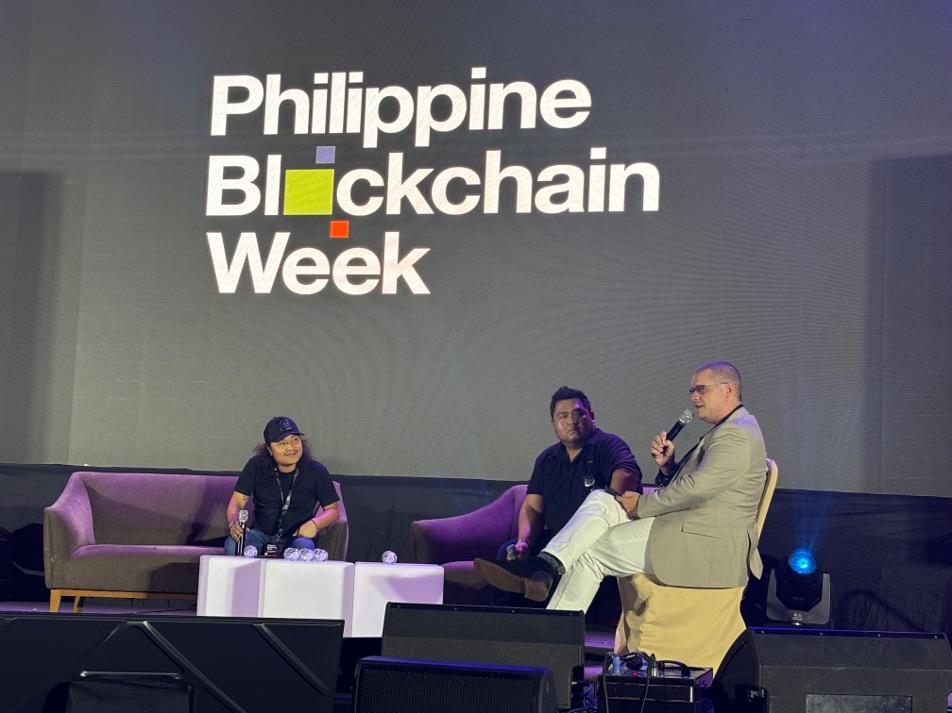|
Getting your Trinity Audio player ready...
|
Governments and businesses in Southeast Asia are embracing blockchain for public sector reform, national strategy, and financial inclusion. Speaking at the Philippine Blockchain Week 2025 panel “From Regulation to Realization: Blockchain Adoption Across ASEAN’s Public and Private Sectors,” industry leaders share how blockchain adoption is shaping the region.
Raine Renaldi, Chief of the Economy and Digital Asset Committee of KADIN, Indonesia’s Chamber of Commerce and Industry, said digital currency usage in the country is quickly moving from niche to mainstream.
“Indonesia already has over 170 million users through platforms that have secured crypto exchange licenses,” Renaldi said. “It’s only a matter of time before all of them are on-chain.”
Official statistics place the number of active digital currency users at 22 million, but Renaldi cited internal data showing it may already exceed 40 million.
The country’s blockchain roadmap began in 2014, followed by tighter collaboration with regulators in 2019.

“My goals are simple – make the ecosystem better, bigger, and safer,” Renaldi said, adding that building a safe digital asset economy requires more than just legal clarity. “We’re not only focusing on regulation but also the economic effects of crypto. Indonesia currently ranks among the top countries in global crypto adoption, and it’s still growing.”
Philippine blockchain powers government budget system
In the Philippines, blockchain is no longer a proof of concept (PoC)—it’s part of public sector infrastructure. Paul Soliman, Chairman and CEO of BayaniChain, revealed that his company’s Layer 2 network is being used by the country’s Department of Budget and Management (DBM) to process government transactions.
“We’re the only blockchain infrastructure company in the Philippines,” Soliman said. “And we’re not just experimenting—we’re processing billions of pesos in government transactions on-chain.”
Soliman, who also sits on the Blockchain Council of the Philippines (BCP), emphasized the growing involvement of the private sector in shaping blockchain policy, saying, “We have active partnerships with government agencies like the Commission on Higher Education (CHED) and DBM. The Blockchain Council [of the Philippines] helps bridge the gap between innovators and regulators.”
He said this progress is aided by the Philippines’ Securities and Exchange Commission’s (SEC) sandbox program, which allows companies to test blockchain-based financial products in a controlled environment.
“The Philippines is more advanced than some countries when it comes to regulatory experimentation,” Soliman said. “Through the sandbox, companies can explore tokenization and security tokens under SEC oversight.”
However, he pointed out that sandbox operations are still limited, saying, “There’s no live product yet. It’s all testing under strict compliance conditions.”
AI will transact on blockchain within a decade, Soliman predictsLooking ahead, Soliman sees blockchain merging with artificial intelligence (AI) to create fully autonomous systems.
“I’m also a Microsoft MVP, and we’re developing agent-to-agent protocols,” he said. “In five to ten years, AI agents will transact with each other directly on the blockchain. That’s the next big leap.”
He pointed to growing real-world use cases, including stablecoins.
“In the Philippines, stablecoins are being called the ‘super app of payments’ because of their intuitive use. People understand them. Onboarding is easy. That’s accelerating adoption,” he said.
Data shows region leads the world in adoption
The 2024 Global Crypto Adoption Index from Chainalysis confirms that Southeast Asia, especially the Central and Southern Asia and Oceania (CSAO) region, is leading the world in blockchain uptake. The rankings are based on four key indicators: centralized service value received, retail transaction volume, decentralized finance (DeFi) protocol use, and DeFi-based retail transfers. All are weighted by GDP per capita on a purchasing power parity basis, which favors countries where digital currency transactions represent a larger share of economic activity.
According to the report, the Philippines, Indonesia, Vietnam, and Thailand score high across all sub-index categories. The emphasis on actual economic value versus headline volume has brought emerging economies to the forefront. In this model, a $100 transaction in a developing country can count for more than a $10,000 transaction in a high-income nation, provided it reflects real usage by individuals.
Southeast Asia builds, not just adopts
As blockchain became part of public infrastructure, finance, and digital economies across Southeast Asia, the panel’s message was clear: Southeast Asia is no longer on the sidelines.
“Indonesia is not waiting anymore,” Renaldi said. “Crypto and blockchain are already embedded in our economy.”
Soliman echoed that sentiment. “We’re not users – we’re builders.”
Watch: The Philippines is moving toward blockchain-enabled tech

 02-25-2026
02-25-2026 




